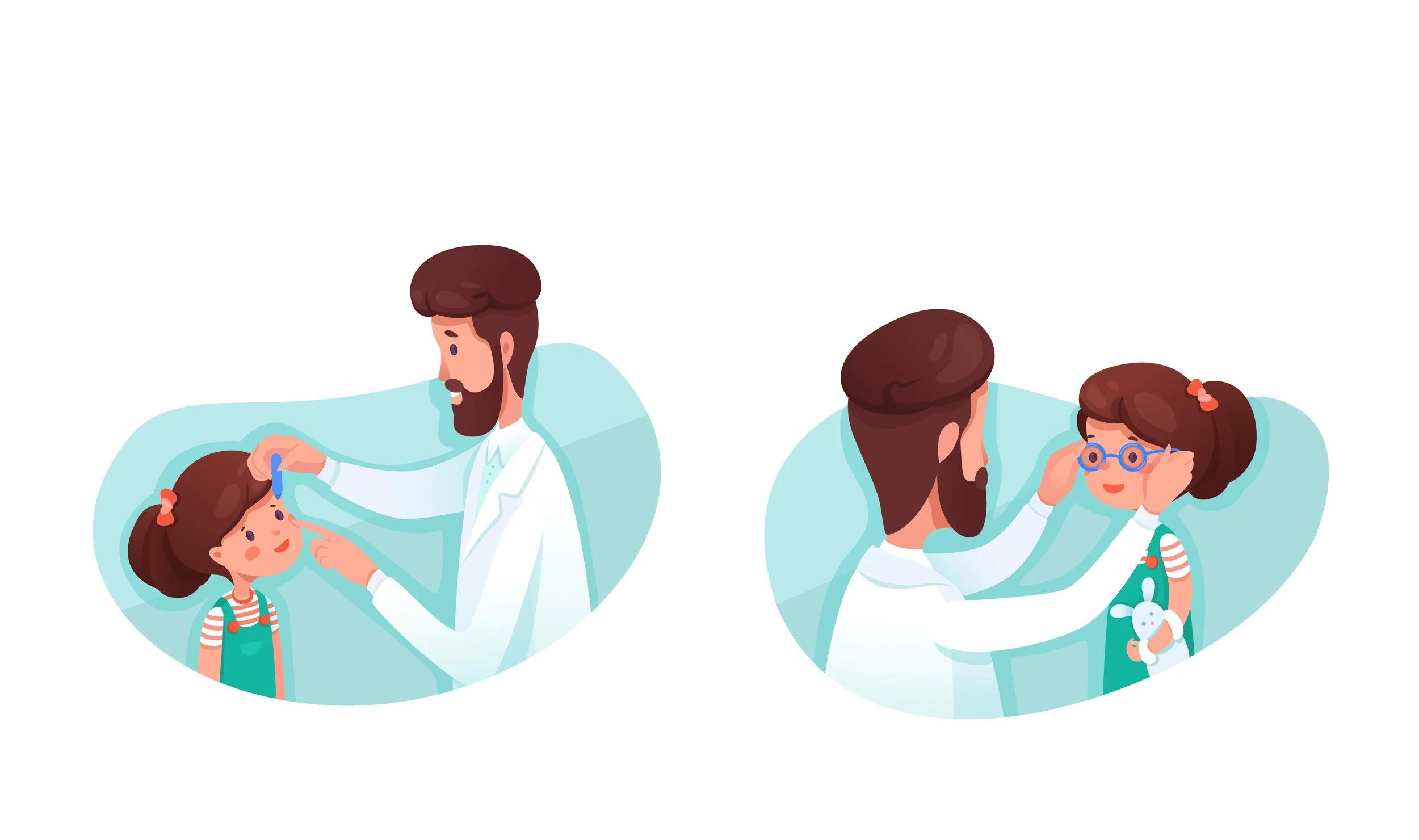GENERAL OPTOMETRY
Regular eye testing is crucial for good visual function. A general eye examination involves optimising your eyesight and focusing ability, determining the best spectacles for your visual needs and checking your eye health.
We use traditional and modern technologies to detect eye diseases such as diabetic retinopathy, glaucoma, and macular degeneration. One of these technologies is Ocular Coherence Tomography (OCT).
WHAT IS AN OCT?
The OCT provides a cross-sectional and 3D scan of the front and back of the eye. It is similar to an ultrasound and allows us to see the specific layers that make up your eyes, which makes diagnosing or monitoring a condition more accurate.
Many eye diseases can be treated or managed effectively when detected early. This is why we recommend every patient have an OCT as part of a comprehensive eye exam.
Our Approach to Eye Diseases
Consultations are usually bulk billed. However, there are fees associated with conditions that require more procedures. We have listed our management for some common eye diseases.
Glaucoma
Glaucoma is the name given to a group of eye diseases where vision is impaired due to damage to the optic nerve. The vision loss is usually gradual, and considerable side vision may be lost before the patient is aware of it. This is why glaucoma is known as the ‘thief of vision’’.
Our consultation includes the following:
Comprehensive case history of your ocular, medical and family history
Assessment of the front of the eye, including gonioscopy and pachymetry
Visual field examination
Evaluation of the back of the eye, including Ocular Coherence Tomography
A report or referral to an ophthalmologist
Consultation fees range between $120 and $160. A Medicare rebate of up to $60 will apply. For more information about glaucoma, visit the Glaucoma Australia website.
MACULAR DEGENERATION
Age-related macular degeneration is a chronic but painless disease that breaks down the retinal pigment epithelium (RPE), a layer of cells at the base of the retina. The RPE delivers nutrients and removes metabolic waste from the macula. Without it, patients will lose their ability to see fine details or recognise faces.
There is no treatment for macular degeneration unless the formation of new blood vessels is involved. Early detection and counselling is the best approach to prolonging functional vision.
Dry vs wet md
Wet MD is usually caused by blood vessels that leak fluid or blood into the macula. Without treatment, it causes rapid and progressive central vision loss.
Our consultation includes the following:
Comprehensive case history of your ocular, medical and family history
Amsler grid and visual field examination
Dilated fundus examination, including Ocular Coherence Tomography
If required, a referral to an ophthalmologist
Advice on ways to slow down macular degeneration
Consultation fees are $120. A Medicare rebate of up to $60 will apply. For more information about Macular Degeneration, visit the Macular Disease Foundation.
DIABETIC RETINOPATHY
The eye is a window to your vascular health. Diabetes will cause damage to small blood vessels depending on the duration you have the disease, the severity, how well you control it and whether you have other cardiovascular risk factors.
Diabetic retinopathy (DR) is characterised by damage to the small vessels in the retina, fluid buildup in the retina, and the formation of new blood vessels on the iris or retina. As a result, the patient can lose vision.
It is essential to report vascular changes to your GP and endocrinologist, as it reflects what’s happening in your body.
Our consultation includes the following:
Comprehensive case history of your ocular, medical and family history
Assessment of the front of the eye, including gonioscopy
Visual field examination
Dilated fundus examination, including Ocular Coherence Tomography, to rule out macula edema
Peripheral retinal examination with a Binocular Indirect Ophthalmoscope
A report to your GP
Referral to an ophthalmologist if the diabetic retinopathy is vision threatening
Consultation fees are $120 and $160. A Medicare rebate of up to $60 will apply. For more information about Diabetic Retinopathy, visit the Macular Disease Foundation.
DRY EYE AND BLEPHARITIS
Dry eye is a multifactorial disease of the ocular surface that changes the tear film chemistry. Over time, this results in inflammation and damage to the ocular surface. Most cases are self-limiting, but some require ongoing treatment.
Symptoms can include sore or swollen eyelids, a gritty or burning feeling to the eyes, crusting on the eyelashes, watery eyes and blurry vision.
Our consultation includes the following.
Comprehensive case history of your ocular, medical and family history
Assessment of the front of the eye, including corneal staining with a Fluorescein dye
Advice on the best ocular lubricants for your dry eyes
Providing a prescription for topical steroids
Mechanical removal of the crust or Demodex mites on the eyelashes, followed by a clean
Fitting of bandage contact lenses for severe dry eyes
A report to your GP if oral antibiotics (such as doxycycline) are required for your management
The consultation is bulk billed, but procedures include lid hygiene and contact lens fitting. For more information, please speak to one of our staff members.







